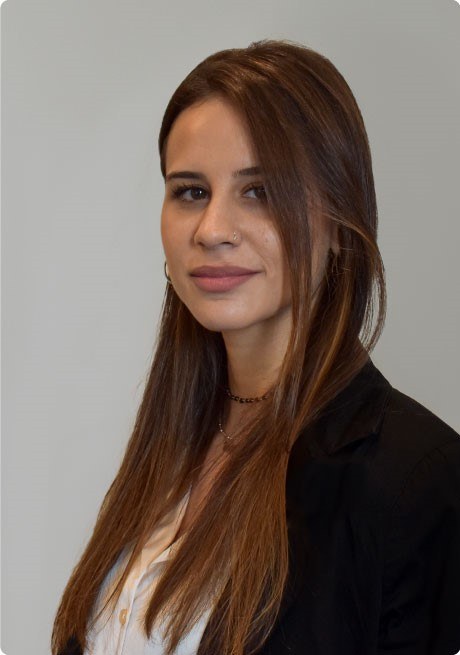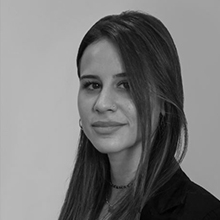Psychometric assessments take the guess work out of maritime recruitment
The role of an HR manager is not an easy one, especially within the context of the maritime industry. From crew rotation planning to talent retention, it is a unique working environment with complex challenges to solve on a daily basis.
Recruitment and career development can be a real headache for HR managers, especially since the industry has a high turnover of staff. Young seafarers in particular often struggle with the harsh reality of being away from home and families for months at a time.
It’s therefore essential for HR managers to make the right choices when recruiting new people or determining which crew members to promote, but how can they be absolutely sure about their decisions based on the candidate’s CV or a one-to-one interview?
Mintra has the answer. SafeMetrix is a rank-specific assessment tool that provides real, actionable data to ensure the right person is matched to the right role. It comprises two psychometric assessments – one for non-technical soft skills and the other for cognitive abilities – to enable HR managers to see beyond the words on a CV.
In such a heavily regulated industry where technical abilities are paramount to the safety of seafarers and the vessels they operate, it’s understandable to question how these assessments can add further value. However, with crews becoming smaller as a result of the increasing automation of technical tasks, the ability to understand and develop soft skills has never been more important.

The MET-3S psychometric assessment has been specifically developed for the maritime industry and examines 13 uniquely different soft skills. These are grouped into three different clusters under the headings of coping under pressure, self-management and interpersonal skills.
Cognitive skills – the way the brain reasons, thinks and solves problems – are assessed under MET-CSS, a separate assessment that has also been developed for maritime. It’s a performance test based on speed and accuracy, examining memorisation, problem-solving, spatial orientation and information ordering. Visualisation is also assessed for two ranks.
The assessment reflects the fact that crews need to process more complex information as the industry moves further along its journey towards automation and digitisation. On board modern ships, technology and IT drives operations from the deck to the engine room.
So how do the assessments inform the recruitment and career development process? HR managers have a deep understanding of the skills and attributes relevant to each role. For example, a cadet would benefit from the ability to follow instruction and have good interpersonal skills so they can integrate with a multicultural crew, whereas the master would be expected to demonstrate strong leadership qualities and problem-solving skills.
To show the scope of the data SafeMetrix can produce, we conducted a study based on current system users, broken down by characteristics such as age, rank and nationality. The study produced some interesting results.
For example, taking the results for the cohort of management level deck officers – such as captains and chief officers – we discovered that nationality was the most consistent predictor and that seafarers from the Philippines were the most skilled across the board. We also learned that:

These results show that seafarers from the Philippines outperform other nationalities. This, on the face of it, may not be surprising. After all, they are culturally more exposed to the maritime industry and may have a greater number of seafarers within their social groups. That familiarity makes them more adaptable and prepared for the role.
But what we can also learn from the SafeMetrix assessment is how likely people are to over or underreport. Seafarers are also assessed for social desirability bias, that is to say how keen people are to give the answers they think they should give rather than what is actually accurate.
Filipino seafarers at management level were found to underreport what would generally be considered as socially undesirable characteristics, scoring as much as 7.5% higher than other nationalities.
So, the higher scores they returned across non-technical skills may not necessarily mean they have a higher level of proficiency, just that they lean towards overly positive self-descriptions. The ability to recognise undesirable behaviours over desirable ones is, however, in itself a skill that should be acknowledged.
This is another good reason to carry out both soft skills and cognitive skills assessments that are offered through SafeMetrix. While it is possible to manipulate soft skills, it is impossible to over-exaggerate cognitive abilities as these cannot be memorised.
Taking that same group of management level deck officers and measuring their cognitive abilities produced very different results. As one would expect, age tended to be a significant factor in predicting the accuracy of all cognitive skills, but other results showed:

The results of this survey underline just how valuable assessments of skills beyond those on a CV are within a maritime context. From many years of experience as a trusted partner of the maritime industry, we understand how important it is to find the people who are the right fit for an organisation or role requirement.
SafeMetrix takes some of the guess work away. A high performing seafarer generally is a happy seafarer. Happy seafarers are more likely to continually strive to perform – and stay longer, reducing the burden placed on HR managers.
Evi Argyrou is a product expert for SafeMetrix. A qualified psychologist, she is based within Mintra’s team in Limassol, Cyprus, working with colleagues who have a special interest in the maritime sector.
Insights & News
At Mintra, we're so much more than just a team—we're a force driving innovation and excellence in maritime training across Europe.
We’re excited to be taking the stage at one of Europe’s leading showcases of organisational learning.
We are delighted to share the exciting news that our People and Culture team has been shortlisted for the prestigious cHeRries Awards!
